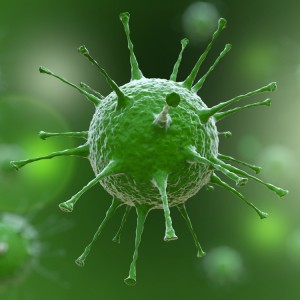 UT Southwestern Medical Center researchers, in collaboration with colleagues from the Karolinska Institutet in Stockholm, Sweden, have published the results of a recent study in Science, titled “MAVS, cGAS, and endogenous retroviruses in T-independent B cell responses” whereby they show endogenous retroviruses (ERV) play a crucial role in the body’s immune defense against bacterial and viral pathogens.
UT Southwestern Medical Center researchers, in collaboration with colleagues from the Karolinska Institutet in Stockholm, Sweden, have published the results of a recent study in Science, titled “MAVS, cGAS, and endogenous retroviruses in T-independent B cell responses” whereby they show endogenous retroviruses (ERV) play a crucial role in the body’s immune defense against bacterial and viral pathogens.
“Most scientists have become used to the view that retroviruses are generally harmful,” Nobel Laureate Dr. Bruce Beutler, Professor and Director of UT Southwestern’s Center for the Genetics of Host Defense, said in a news release. “We have found that ERV fulfil at least one beneficial function critical to producing protective antibodies.”
Retroviruses have the capacity to access the genomic DNA of the cell they infect, beginning a phenomenon known as retrotransposition, allowing them to become part of the genome itself. A big percentage of an individual’s DNA originates from retroviruses, with some copies termed “endogenous retroviruses” (ERV).
Retroviruses are mostly known for causing contagious diseases such as AIDS, or in some occasions, cancer. They account for approximately 8%-10% of the total human T-cell leukemias, and are responsible for enhanced transcription of viral and cellular genes promoting cell growth and deregulating cellular regulatory suppressor genes, such as p53.
Moreover, in 3-4% of HIV infected patients, B-cell non-Hodgkin’s lymphoma occurs as their first acquired immunodeficiency syndrome and human papilloma viruses are linked to invasive cervical cancer and anogenital cancers among HIV-infected patients.
In this study, the research team found that upon B cell activation from bacterial antigens, the quick humoral (antibody) response that is produced is dependent on ERV.
“These findings suggest that both the RNA and DNA sensing pathways play an important role in detecting ERV and activating adaptive immune responses,” Dr. Chen, an investigator of Howard Hughes Medical Institute and holds the George L. MacGregor Distinguished Chair in Biomedical Sciences, stated in the news release.
“Once retroviruses have become part of the host germline, they are subject to selection for beneficial effects just like any other part of the genome, and their ability to activate an innate immune response seems to have been utilized to the benefit of the host,” added Dr. Gunilla Karlsson Hedestam, Professor at the Department of Microbiology, Tumor and Cell Biology at Karolinska Institutet.


